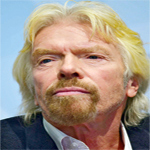Q: Is there a place in today’s business world for entrepreneurs to create companies that challenge expectations and disrupt the status quo, while also making a profit?
— Howard Colin
A: Yes, absolutely. In fact, challenging expectations is the key to long-term profitability. If business owners want their companies to remain competitive in the next five years or the next five decades, they need to get disruptive — and fast.
 Every single company should be working to bring an end to business as usual. Firms must acknowledge that workplaces as they once were, and the needs of workers within them, are rapidly changing. Technological advances, along with a greater understanding of employee needs, have made flexible work arrangements more commonplace. The notion of working an eight-hour day, Monday through Friday, is starting to feel outdated.
Every single company should be working to bring an end to business as usual. Firms must acknowledge that workplaces as they once were, and the needs of workers within them, are rapidly changing. Technological advances, along with a greater understanding of employee needs, have made flexible work arrangements more commonplace. The notion of working an eight-hour day, Monday through Friday, is starting to feel outdated.
Smart business leaders are developing better ways of doing business by considering technological developments and the well-being of their employees and the planet. I’ve regularly referred to “Plan A” as the state in which companies are driven by profit alone. This strategy is no longer acceptable. We need a Plan B.
In 2013, Virgin Unite helped bring business leaders together to form the not-for-profit initiative known as the B Team. As co-chair, I worked to develop the B Team’s mission: to catalyze leaders to create better ways of doing business focused on the well-being of people and our planet. From day one, the B Team has worked hard to understand why companies remain rooted in unsustainable business practices, and how we can convince them to embrace new ways of working. We’ve been inundated with energy, support and constructive criticism. Because of all this, we are on our way to getting millions of business leaders committed to a better way of doing business.
My experience with Virgin has shown me that disrupting the status quo and changing expectations can be a major affront to people. I’ve also learned that the companies willing to change are the ones who understand that in the long run, what’s better for the planet and its people is also better for business. I’m confident that in the coming years a critical mass of business leaders will adopt this way of thinking, creating a tipping point toward the creation of a new business as usual.
Virgin is doing its part by embracing flexible work arrangements — our employees are continually exploring new options for how, when and where they work. While the diverse nature of the Virgin Group means that our companies have different practices and policies, we believe that people should be encouraged to work wherever and however they want in order to get the best results possible. Whether that means hot-desking (in which multiple employees share a single work station), job-sharing (in which full-time positions are split into multiple part-time jobs), or working from home or only four days a week, we’re fully supportive.
I encourage all companies to try new work arrangements. Keep an open mind and consult with your employees on the effectiveness of each approach. Allow yourself to be surprised. Focus on results, not expectations.
A key factor in this brave new world of work is the effect of technology on the employee-employer relationship. Given our vast powers of connectivity, and the attendant temptations of an “always-on” work culture, it’s vital that managers remember that the greatest advantage technology can offer is the opportunity to work smarter, not harder or longer. Mold your company’s culture from the top: If you want your workers to behave a certain way, you need to practice what you preach, and preach what you really believe — otherwise your staff will burn out, their passion will wane and productivity will suffer.
With the evolution of smart technologies such as artificial intelligence and augmented reality, many industries are seeing dramatic improvements in productivity, even while they drastically reduce their reliance on people power. While these changes are exciting, businesses will face grave risks if they aren’t careful to navigate them properly.
There’s a lot to consider as the world of work evolves. But your first priority should always be to support happy people and a healthy planet — happy, healthy profits will inevitably follow.
(Questions from readers will be
answered in future columns. Please send them to Richard.Branson@nytimes.com.
Please include your name, country, email address and the name of the
website or publication where you read the column.)
© 2011 Richard Branson (Distributed by The New York TimesSyndicate)